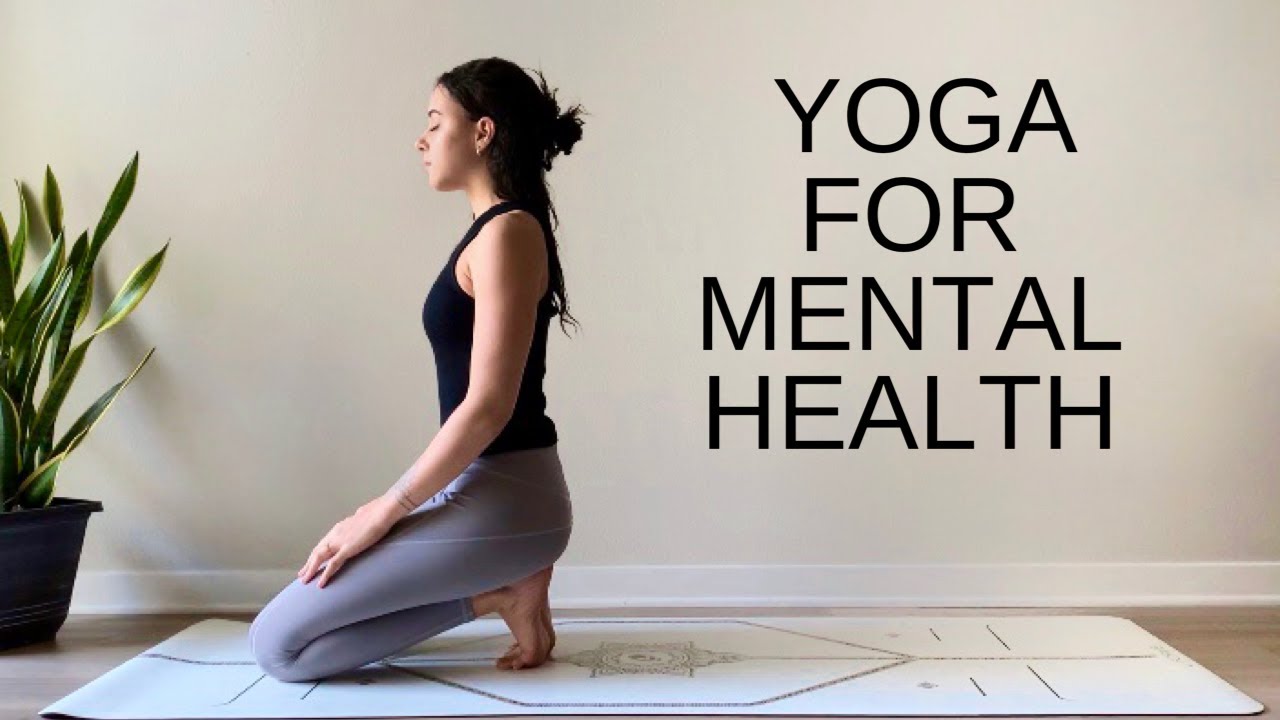We’ve all heard the phrase, “A healthy mind resides in a healthy body.” In today’s fast-paced world, prioritizing mental health is more crucial than ever. Yoga, an ancient practice that combines physical poses, breathing exercises, and meditation, has proven to be a powerful tool not only for physical fitness but also for mental well-being. Whether you’re coping with stress, anxiety, or depression, or simply seeking a way to center your mind, yoga offers a wide range of mental health benefits.
This article highlights seven key mental health benefits of yoga and explains why more individuals are embracing this age-old practice for emotional balance and mental clarity.
What is Yoga? Before exploring yoga’s mental health benefits, let’s define what yoga is. Originating in ancient India, yoga is a holistic practice that includes physical postures (asanas), breathing techniques (pranayama), and meditation. There are various styles of yoga, such as Hatha, Vinyasa, Kundalini, and Ashtanga, but all aim to connect the mind, body, and spirit.
Yoga isn’t just about increasing flexibility or stretching; it’s about cultivating mental clarity and emotional peace through mindful movements and breathwork. This connection between body and mind is what makes yoga such a potent tool for mental health improvement.
The Link Between Yoga and Mental Health Yoga is more than just a physical exercise; it profoundly impacts mental well-being. Since the mind and body are interconnected, stress in one can lead to tension in the other. Yoga integrates mindfulness and breathing with physical movements, helping to cultivate self-awareness and mental calmness.
By encouraging focus on the present moment, yoga helps reduce distractions and promote emotional balance, transforming how we manage emotions, thoughts, and stress.
1. Reduces Stress One of yoga’s most recognized benefits is stress reduction. Stress triggers the release of cortisol, a hormone that can lead to anxiety, fatigue, and weakened immunity. Yoga teaches controlled breathing, which activates the parasympathetic nervous system, reducing cortisol levels.
Poses like Child’s Pose and Forward Bend encourage relaxation, while deep breathing soothes the mind. Yoga helps us slow down, breathe deeply, and disconnect from life’s constant pressures, giving the nervous system a chance to unwind and reset.
2. Eases Anxiety Yoga is also effective in alleviating anxiety. Many people feel calmer and more grounded after practicing yoga due to the deep breathing techniques that activate the body’s natural relaxation response.
Specific postures, like Seated Forward Bend and Legs Up the Wall, paired with breathwork, are especially useful for calming the mind. Research shows that regular yoga practice can significantly reduce anxiety symptoms, making it an excellent tool for managing both daily stress and long-term anxiety disorders.
3. Enhances Mood and Fights Depression Yoga can be a great mood booster and an effective tool in fighting depression. Physical activity triggers the release of endorphins, the body’s “feel-good” chemicals, and yoga boosts serotonin, a neurotransmitter linked to happiness and well-being.
Consistent yoga practice has been shown to increase emotional resilience, helping people cope with difficult emotions. Poses like Warrior II and Bridge Pose can lift your mood and combat feelings of sadness or hopelessness.
4. Improves Concentration and Focus In a world filled with distractions, maintaining focus can be difficult. Yoga helps by training the mind to stay present. Through mindfulness, yoga encourages concentration on breath and movement, sharpening mental focus.
Balance-intensive poses like Tree Pose and Eagle Pose help improve concentration and attention span. With regular practice, yoga enhances cognitive function, making it easier to concentrate on everyday tasks.
5. Promotes Mindfulness and Self-Awareness A key principle of yoga is mindfulness—the practice of being fully present in the moment. Yoga teaches us to listen to our bodies and minds without judgment, which over time enhances self-awareness.
Increased mindfulness leads to mental clarity and helps break free from negative thinking patterns. By practicing yoga, we develop a non-judgmental, compassionate mindset that promotes a more peaceful and content mental state.
6. Enhances Sleep Quality If you struggle with sleep issues, yoga might be the answer. Regular yoga practice can improve sleep quality by calming the mind and helping regulate the body’s natural sleep-wake cycle. Styles such as Restorative Yoga are designed to relax the body and promote deep, restful sleep.
Better sleep has a direct positive impact on mental health, making you more resilient, less stressed, and better equipped to handle emotional challenges.
7. Builds Resilience and Emotional Regulation Yoga helps build resilience—the ability to cope with life’s ups and downs. Through consistent practice, yoga strengthens emotional regulation, enabling you to stay grounded during challenging times.
Breathing exercises combined with grounding poses like Mountain Pose or Child’s Pose teach calmness and centeredness during emotional upheavals, contributing to long-term mental stability.
The Science Behind Yoga’s Mental Health Benefits Yoga’s mental health benefits are backed by scientific research. Studies show that yoga can lower cortisol levels, increase GABA (a calming neurotransmitter), and improve brain function—all of which support better mental health.
Yoga also promotes the release of endorphins and serotonin, improving mood and combating anxiety and depression.
Incorporating Yoga into Your Routine for Mental Health Starting yoga doesn’t have to be overwhelming. Begin with simple poses and breathing exercises for 10-15 minutes a day. Consistency is key. Over time, you’ll notice yoga’s effects on stress management, mood enhancement, and mental clarity.
You don’t need to attend daily classes—there are many online resources and apps that allow you to practice from the comfort of your home.
Conclusion Yoga offers a holistic approach to mental health, from reducing stress and anxiety to boosting mood and improving focus. Whether you’re new to yoga or a seasoned practitioner, its mental health benefits are undeniable. So, roll out your mat, take a deep breath, and begin your journey to a calmer, more balanced mind.
